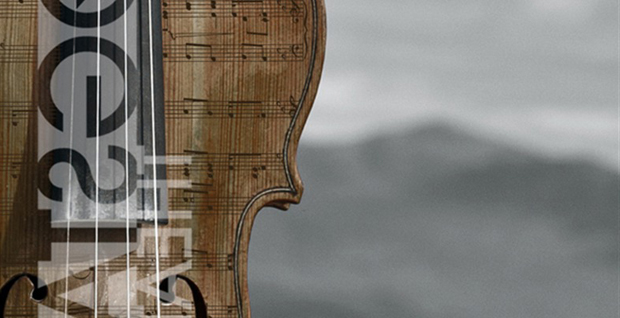Showing @ Brunton Theatre, Musselburgh, Fri 27 Jan & Traverse Theatre, Edinburgh, Wed 23 May
Tell us a bit about The Captain’s Collection….
The story is centred around Captain Simon Fraser, who originally came from Invernesshire in the late 1700s, not long after the Jacobite rebellion. He collected music, stories and songs from the people around and wrote the scores down, but without the lyrics. At the time he was doing this, he was trying to get in favour with King George, and he felt that if he wrote the Gaelic down then he wouldn’t be accepted as part of the Highland Society, which many prominent and affluent figures of the time, including Sir Walter Scott, were part of; he was keen to be accepted and part of that. He took a lot of stick for his actions, was accused by people that he’d cut out their tongues and all sorts. Despite his efforts, he went to his death a pauper. The play, written by Hamish MacDonald, captures the dichotomy in the man himself: he could not see the value in the words. Many accusers were right in that. The play starts when he’s dying and is set around the memories and dreams which haunt him and some of the stories of the tunes.
The show was originally produced in 1999. Are there any changes?
Yes, there are quite a few changes. When the play was first done for Highland Festival, it was all done in village halls and played in the round. This time, we’re putting it on in Glasgow and Musselburgh at the end of January and then there’s a big tour in May, where it’ll play Eden Court in Inverness and the Traverse in Edinburgh as well as lots of other smaller venues too. It’s been a great opportunity to revisit it, put more into it. The major change is that Hamish played Simon first time round, and now it’s Matthew [Zajak]. Some music is swapped about; he collected hundreds of tunes so this time we’ve made changes where we think others will work better.
Why is it important that audiences see it now, almost 13 years later?
It’s a different production for a start; they might like it more now! For new audiences who see it in Glasgow and Edinburgh, I guess nowadays you don’t think about where music comes from. Years ago, it was passed from mouth to mouth, events were told and it was much more of an oral culture. We don’t really do that so much now. It’s a great way of combining dramatic events, words and music. Johnny Hardie is a fab musician and it’s a lovely piece of theatre. You get to see wonderful live music, and good renditions of some really great tunes which will no doubt sound familiar to a lot of people.
Music is a vital part of the piece, and is always a prominent feature of Dogstar work. In The Captain’s Collection, the soundtrack is part of the storyline. Are there difficulties when staging this and how have you overcome them?
It’s all integrated with part of the journey, music is either underscoring the telling of the action, or it’s leading us into an event. For example, Fraser remembering a battle he himself had been involved in. He’d fought for King George and was involved in a massacre. At the time he hadn’t made the realisation and had just obeyed orders. Towards the end of his life he begins to understand that the music he collected was about these events; grieving and loss of life.
The central belt receives a lot of theatre and Dogstar try to take theatre to places that don’t receive as much. Do you think that holding the festival in Glasgow opens these events up to a central-belt audience who might not otherwise see them?
The Captain’s Collection is also going to small venues like Banchory as well as Eden Court and the Traverse, so the scale of it has to go from big to small. I hope that people in all areas will come; music has a broad appeal, be it Scottish, Irish, American…music has a great way of appealing to a lot of different people, no matter where they come from. People, especially Celtic Connection’s audience, like seeing really good live renditions of songs. Johnny [Hardie] our Musical Director, multi-instrumentalist Ingrid Henderson and singer Alyth McCormack do a fantastic job of that.
The play won awards for the radio series that was produced on Radio Scotland. You yourself have had a great deal of experience on radio. What do you think it was about the story that made it so successful?
It’s both about the story and the music. When people realise it’s the story of the person who collected music that we would know and recognise today, it becomes very interesting. It wasn’t his music, but he collected generations of it. The man himself has a dramatic life, with many struggles and I think that’s interesting. He felt he was compelled to collect this music – to do it without the Gaelic lyrics – and his passion, really comes across on radio.
You have worked with so many people on so many projects across Scotland. What makes Dogstar stand apart from other Scottish companies you’ve worked with?
Every company has it’s own individuality. Both Hamish and Matthew have tremendous passion for theatre and specifically, theatre about the culture of Scotland. They are very driven to make sure that they do productions that are outwith the central belt and reflect traditional Scottish culture, but they also love hearing and absorbing stories from Sweden and other cultures different to our own. Their commitment and passion is tantalising and exciting to work with; it’s always good to work with people who really care and for whom, this is more than just a job. They are hugely intelligent and creative people. They are the company.
For more information, visit Dogstar Theatre Company’s website.
